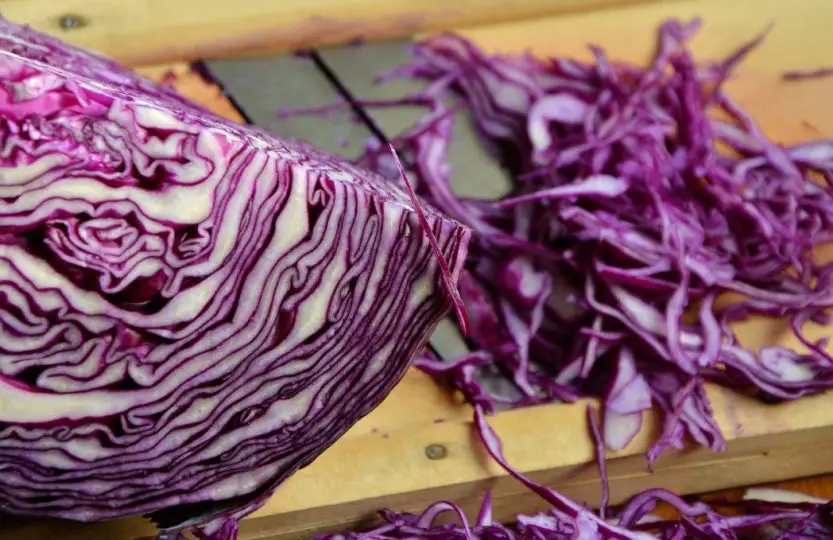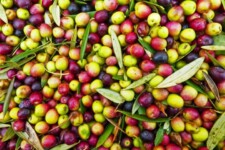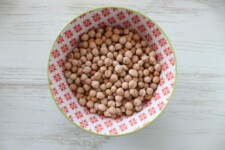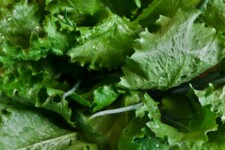Can Dogs Safely Eat Cabbage? (The Surprising Answer)
Cabbage is one of the healthiest vegetables around, and it is a common vegetable in our plates.
It is tasty and healthy, and it has been mentioned as one of the best antioxidants to promote the immune system.
You’ve probably given your canine a bite of the cabbage without knowing whether it is a good or bad vegetable for your dog. And your dog is already salivating for this vegetable.
But, can dogs eat cabbage or should you stop the temptation to give him some?
The truth is, dogs can eat cabbage, but, not too fast!
Before you serve your dog cabbage, there are some things that you should know upfront to prevent causing tummy issues to your dog.

Is cabbage good for Dogs?
Yes, cabbage is a good green vegetable for your dog and is less likely to have any harmful effect as long as you don’t give him too much cabbage.
The fact that cabbage is beneficial to humans makes cabbage potentially good for your dog. However, not all vegetables that are good for humans are good for dogs.
You can give your dog green, purple or even red cabbage, as long as it is plain. Adding spices, salt or butter can make it difficult for your pooch to eat this vegetable, and these additives may trigger digestive issues.
Naturally, dogs were not born to be herbivores, and therefore, their digestive system may take longer to digest plant materials. To make it easy on the dog’s stomach, chop the cabbage into small pieces that are chewable and digestible.
You can then serve the chopped cabbage as a top-up to the dog’s regular complete and balanced meal. Alternatively, serve the cabbage as a snack but NOT as the main dinner.
Health benefits of cabbage to dogs
Cabbage is a nutrient-rich vegetable with loads of vitamins and minerals that are beneficial to dogs.
The following are the potential benefits that your dog will get from eating cabbage:
Natural antioxidant
Cabbage is rich in antioxidants such as vitamin C, which help protect body cells from being affected by free radicals which may affect your dog.
When free radicals are large in number, they can cause damage to body cells. Antioxidants help fight common diseases in dogs to help them stay healthy and alert.
Fiber
If you are looking serve a high fiber dog food to your canine, then cabbage is one of those fiber-rich vegetables you should add to your dog’s regular diet.
Cabbage is full of both insoluble and soluble fiber.
Insoluble fiber is a type of fiber that cannot be broken down during digestion, and it helps keep the digestive system in check by making stool firmer and triggering regular bowel movements.
On the other hand, soluble fiber is digestible, and it adds beneficial bacteria to the gut. The beneficial bacteria helps keep the dog’s digestive system healthy.
Good for the skin
Cabbage is high in sulfur, a mineral element that is sometimes referred to as the “beautifying mineral”.
This mineral is good for drying up oily skin and promoting the production of keratin, which is necessary for healthy skin, nails, and skin.
Giving your dog small chops of cabbage once in a while can make his fur smooth and shiny.
Is cabbage safe for dogs? [Potential Side Effects]
Dogs are natural canines, and their digestive system can handle animal material better than plant materials.
When feeding your dog this green vegetable, watch out the quantity you are giving him.
The following are some potential side effects of your dog eating too much cabbage:
Flatulence
Even though cabbage is a healthy vegetable for your dog, eating too much of it can cause gas among certain dogs.
This may result in stomach ache, frequent flatulence, and even diarrhea.
Thyroid glands
Raw cabbage contains a compound known as thiocyanate, which suppresses the thyroid glands and this can lead to a condition known as hypothyroidism.
However, this may only occur if you serve your dog too much cabbage.
Steaming your cabbage under low heat can deactivate the compound and reduce the risk of your dog getting hypothyroidism.
Read all about the Best Dog Food for Hypothyroidism
If your dog has any pre-existing health condition such as problems with the thyroid glands, you should consult your vet to see if serving cabbage to your dog can have an impact on the condition.
Raw vs. Cooked Cabbage: Which is the best?
You can serve the cabbage in either raw or cooked form.
Some dog parents prefer serving the cabbage raw so that the dog can benefit from all nutrients in the vegetable. Most dogs like the crunchy feeling of cabbage, and it can help keep the teeth in check.
However, feeding raw has a potentially harmful effect. If your dog eats too much raw cabbage, he is at risk of having the thyroid glands suppressed due to the presence of thiocyanate, and may develop hypothyroidism.
To be safe, cook the cabbage on low heat to deactivate the thiocyanate compound to prevent it from having an effect on your dog’s thyroid glands.
Wash the cabbage, add water and steam it under low heat to retain the nutrients and kill the harmful compound.
What to do if your dog eats cabbage
If you frequently have the green or purple cabbage in your meal, it possible that your dog has been salivating for it and will use any opportunity to have a bite of the crunchy vegetable.
If you found your dog eating cabbage leaves, either from your grocery bag or from your backyard garden, there is no cause for alarm.
Cabbage is a safe vegetable for dogs to eat, and it is not toxic to his digestive system.
In fact, cabbage has a beneficial effect on your dog’s health. It is anti-oxidant rich and helps promote the immune system to prevent common illnesses. It is also good for skin, nails, and digestion.
As a rule, always monitor the quantity of cabbage leaves that he is eating.
Only give him small amounts of chopped cabbage, either as a top-up to his meal or as a snack. Cabbage should not be served as the main meal.
However, if you are worried that your dog has eaten too much cabbage, you should keep a close watch for any signs of discomfort. It is possible he will have a lot of gas or experience tummy ache.
If the effects become intense and your dog starts experiencing effects such as diarrhea, vomiting, and fever, you should rush him to your vet immediately to have him examined.
Conclusion on “Can Dogs Eat Cabbage”
Most fruits and vegetables tend to be toxic to dogs, and it is acceptable to be worried if your dog eats cabbage, with or without your knowledge.
To erase any doubts, dogs can eat cabbage, and it is a healthy and nutrient-dense vegetable that your dog will enjoy.
If it is your dog’s first time eating cabbage, try giving him small chopped cabbage pieces first to see how he responds.
If he likes it, add some few pieces of cabbage to his regular diet. Don’t give him too much of this vegetable!
Eating too much cabbage might give him gas and sometimes stomach ache since his digestive system will take longer to digest the food.
Can Dogs Eat These Other Foods?
- Can Dogs Eat Lettuce?
- Can Dogs Eat Chickpeas?
- Can Dogs Eat Coconut?
- Can Dogs Eat Bell Peppers?
- Can Dogs Eat Black or Green Olives?
Sources
https://www.vetmed.wsu.edu/outreach/Pet-Health-Topics/categories/diseases/hypothyroidism-in-dogs



